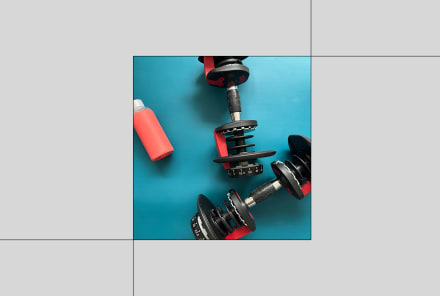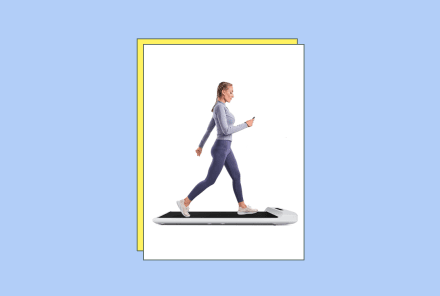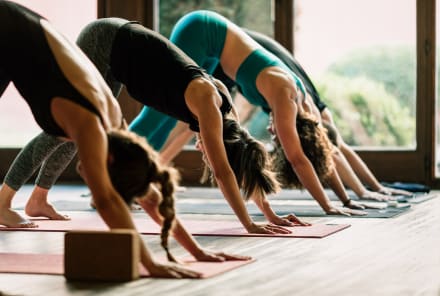Advertisement
6 Reasons Flexibility Is Important To Your Health, According To Experts + Research


There are many reasons why having a flexible body is essential to our health and well-being. I knew this from a young age, as I was involved in dance and gymnastics—both of which require extreme stretching of muscles, tendons, and ligaments (hello: splits!). They also work aggressively on the mobility of joints.
When I went to college, however, I stopped stretching as often and it didn't take long for my splits to go, too. At that juncture, I realized flexibility—when not prioritized—will begin to weaken throughout life.
While getting the splits back is an accomplishment, that's just the beginning. There are many more important health-related benefits of improved flexibility. Here are just a few, according to experts and research:
6 benefits of improved flexibility
Less risk of injuries.
Irritating, everyday injuries that occur when you move the wrong way in bed or feel achy when switching from sitting to standing, can all be caused by poor mobility and tight muscles. Stretching has been shown to be effective at increasing range of motion1, which may help lower the risk of those minor, everyday injuries.
Research has also shown that stretching can help reduce more intense performance-related injuries2. When proper stretching is not incorporated into a fitness routine—particularly with endurance activities, like running—the chance of developing an overuse injury increases. Taking time to stretch both before and after may mitigate those risks.
Better posture.
Whether you're working on a computer or staring at your phone, it's pretty common for your shoulders to hunch and your neck to feel tight. Stretching is one way to correct your alignment, and when done habitually, it may improve your posture, says physical therapist and yoga teacher Jessica Moy, DPT.
Pain reduction.
Poor posture and injuries can lead to pain, so by mitigating those two outcomes (as mentioned above), stretching may also help to reduce overall pain.
Plus, it helps to lengthen the muscles and relax the body. Think about it: if you're sitting for a long period of time and your hips start to tighten up, a deep psoas stretch is likely to melt that tension away and leave you feeling more comfortable.
Here: a chiropractors' go-to stretches for relieving upper-back pain.
Better balance.
Studies have shown that low muscle flexibility can lead to poor balance3, which increases the risk of falls in older adults. Stretching regularly may reduce those risks, according to some research.
In a 2014 study, adults over the age of 65 engaged in exercises, including mobility and stretching, two times a week over the course of 12 weeks. By the end, participants showed increased lower-body flexibility, dynamic balance, and lumbar strength4.
Mood enhancement.
Just as stretching helps to relax the muscles, it can simultaneously relax the mind. It's difficult to feel calm and at ease when your body is tight, hurting, or physically storing stress. Taking a mindful moment to move the body through a gentle yoga flow, or just a simple cat-cow and forward fold, may leave you feeling both physically and mentally lighter.
Heart health.
One study, published in the Journal of Physical Activity and Health found that stretching for at least 30 minutes every day can help reduce overall blood pressure—and may even be more effective than walking. According to co-author of the study Phil Chilibeck, Ph.D., "everyone thinks that stretching is just about stretching your muscles," but in doing so, the blood vessels that feed into the muscles (including the arteries) are also being stretched, he explains.
Another study found that stretching the legs five days a week may lower the risk of developing cardiovascular disease, for the same reason as above: stretching helps reduce stiffness in the arteries and increase blood flow to the heart.
How to become more flexible.
Becoming more flexible doesn't have to look like getting your splits back (unless you want it to, of course). Instead, you can work towards this goal through a combination of daily micro-movements and longer stretch routines. Here are a few to help get you started:
- A 12-minute yoga flow for back pain.
- A simple standing spinal stretch.
- 4 stretches to reduce stiffness from breast cancer treatment.
- A 2-minute stretch for neck and shoulder tension.
- 5 exercises for better mobility and less injury.
- 14 stretches to counteract the effects of sitting.
- An ultra-satisfying wrist stretch.
- A complete guide to yoga.
Bottom Line
In order to remain flexible, we constantly need to be on top of stretching, whether it's through yoga or other body-opening efforts. Maintaining and enhancing one’s flexibility is a lifelong process that can lead to a range of benefits.
Watch Next
Enjoy some of our favorite clips from classes
Enjoy some of our favorite clips from classes
What Is Meditation?
Mindfulness/Spirituality | Light Watkins
Box Breathing
Mindfulness/Spirituality | Gwen Dittmar
What Breathwork Can Address
Mindfulness/Spirituality | Gwen Dittmar
The 8 Limbs of Yoga - What is Asana?
Yoga | Caley Alyssa
Two Standing Postures to Open Up Tight Hips
Yoga | Caley Alyssa
How Plants Can Optimize Athletic Performance
Nutrition | Rich Roll
What to Eat Before a Workout
Nutrition | Rich Roll
How Ayurveda Helps Us Navigate Modern Life
Nutrition | Sahara Rose
Messages About Love & Relationships
Love & Relationships | Esther Perel
Love Languages
Love & Relationships | Esther Perel











